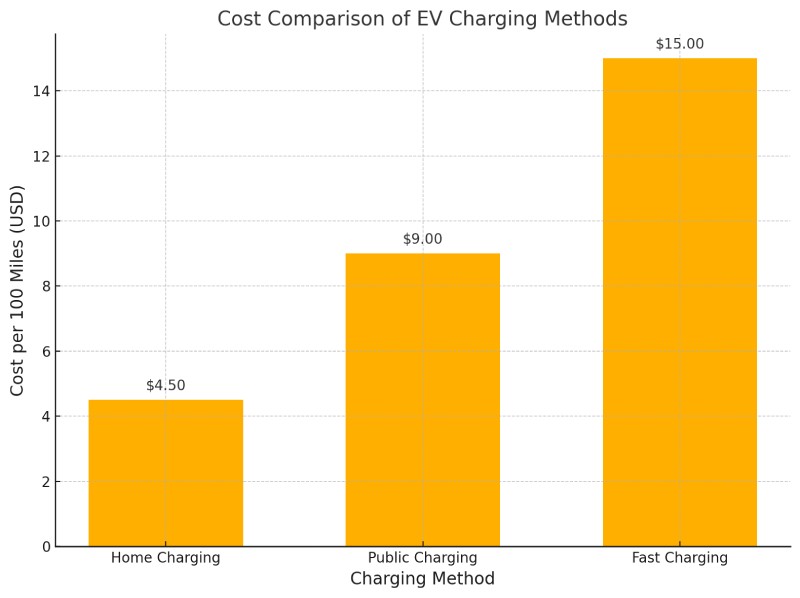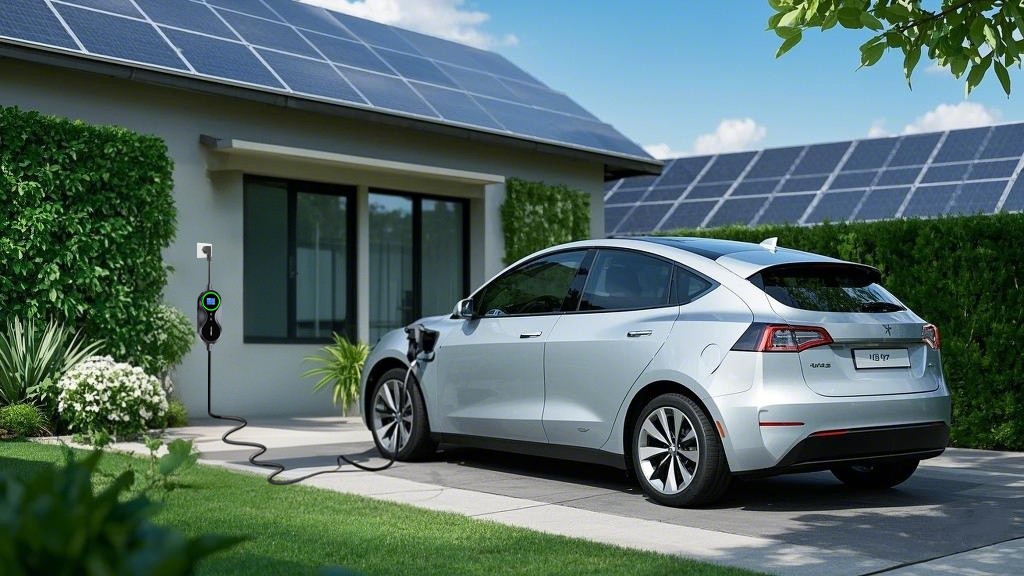How Much Does It Cost to Charge an Electric Car?
Electric vehicles (EVs) are revolutionizing the way we think about transportation, offering a greener and often more affordable alternative to traditional gasoline-powered cars. However, one question usually arises: How much does it cost to charge an EV? This guide will break down the costs of charging at home, public stations, and fast chargers, providing actionable tips to save money and maximize efficiency. Use this guide to make informed decisions about your EV charging needs.
EV Charging Cost Overview
The cost of charging an EV depends on several factors:
Electricity Rates: Vary by region and time of use (peak vs. off-peak).
Battery Size: Larger batteries require more electricity.
Charging Location: Home, public stations, or fast chargers.
Quick Cost Comparison Table
| Charging Location | Cost/kWh | Estimated Cost per 100 Miles |
|---|---|---|
| Home | $0.15 | $4.50 |
| Public Level 2 | $0.30 | $9.00 |
| Fast Charger | $0.50 | $15.00 |

Note: Electricity rates vary by region and time of use (peak vs. off-peak). According to the U.S. Energy Information Administration and Statistics Canada, average electricity costs in North America range from $0.10/kWh to $0.30/kWh.
Electric vehicle charging cost formula
- Basic formula:
Charging Cost = Charging Power × Charging Time × Electricity Price
The formula for Considering Losses and Service Charges:
If charging losses, peak and valley tariffs, and charging service charges are taken into account, the formula for charging costs is
Charging Cost ($) = [(Charging Power (kW) × Charging Time (h) × Tariff (¢/kWh)) ÷ 100] × (1 + Loss Rate) + Charging Service Charge ($)
Home Charging: Cost and Benefits
Charging at home is often the most convenient and cost-effective option for EV owners. Here’s what you need to know:
Cost Calculation
To estimate the cost of home charging:
Find your local electricity rate (e.g., $0.15/kWh).
Determine your EV’s battery capacity (e.g., 60 kWh for a Tesla Model 3).
Multiply the two: $0.15 × 60 kWh = $9.00 for a full charge.
Benefits of Home Charging
Lower cost compared to public charging stations.
Charging overnight during off-peak hours can further reduce expenses.
Convenience of charging your car while you sleep.
Finding the best charging solution for your electric car – Tayniu SpeedyPro Home Charging
Public and Fast Charging: How They Compare
Public and fast chargers are essential when you’re on the road. However, they come at a higher cost.
Public Level 2 Chargers
Cost: $0.30/kWh on average.
Ideal for: Longer stops where you can leave your car to charge.
Example: Charging a 60 kWh battery would cost $18.00.
Fast Chargers
Cost: $0.50/kWh or more.
Ideal for: Quick top-ups but not suitable for regular use due to higher costs.
Example: Charging the same 60 kWh battery could cost $30.00.
Cost Examples: Charging a Tesla Model 3 vs. Nissan Leaf
Here’s a real-world comparison of charging costs:
|
Vehicle |
Battery Size |
Home Charging Cost |
Public Charging Cost |
Fast Charging Cost |
|---|---|---|---|---|
|
Tesla Model 3 |
60 kWh |
$9.00 |
$18.00 |
$30.00 |
|
Nissan Leaf |
40 kWh |
$6.00 |
$12.00 |
$20.00 |
How to Save on EV Charging Costs
Charge During Off-Peak Hours: Many utilities offer lower rates at night.
Install Solar Panels: Generate your own electricity and reduce reliance on the grid.
Use Public Charging Strategically: Use free or discounted rates at certain locations.
Invest in a Smart Charger: Devices like the Tayniu Home Pro optimize charging times for maximum savings.

EV vs. Gasoline: A Cost Per Mile Comparison
EVs: Average cost of $0.04-$0.06 per mile (depending on electricity rates).
Gasoline Cars: Average cost of $0.10-$0.15 per mile (depending on fuel prices and vehicle efficiency).
Over a year, this difference can result in significant savings for EV owners.
FAQ: Common Questions About EV Charging Costs
Q: Does EV charging cost more than gas?
A: No, EV charging is generally cheaper than gasoline, especially if you charge at home.
Q: What are peak and off-peak charging rates?
A: Utilities charge higher rates during peak demand hours and lower rates during off-peak times. Check with your provider for specific details.
Q: How can I calculate my charging costs?
A: Use the formula: Electricity Rate ($/kWh) × Battery Size (kWh).
Want to save even more on EV charging? Explore Tayniu’s range of intelligent chargers designed for efficiency and convenience.
By understanding the costs associated with charging an electric car, you can make informed decisions and maximize your savings. Ready to make the switch to an EV? Let’s make it happen!
Last Updated on January 8, 2025 by tayniu
